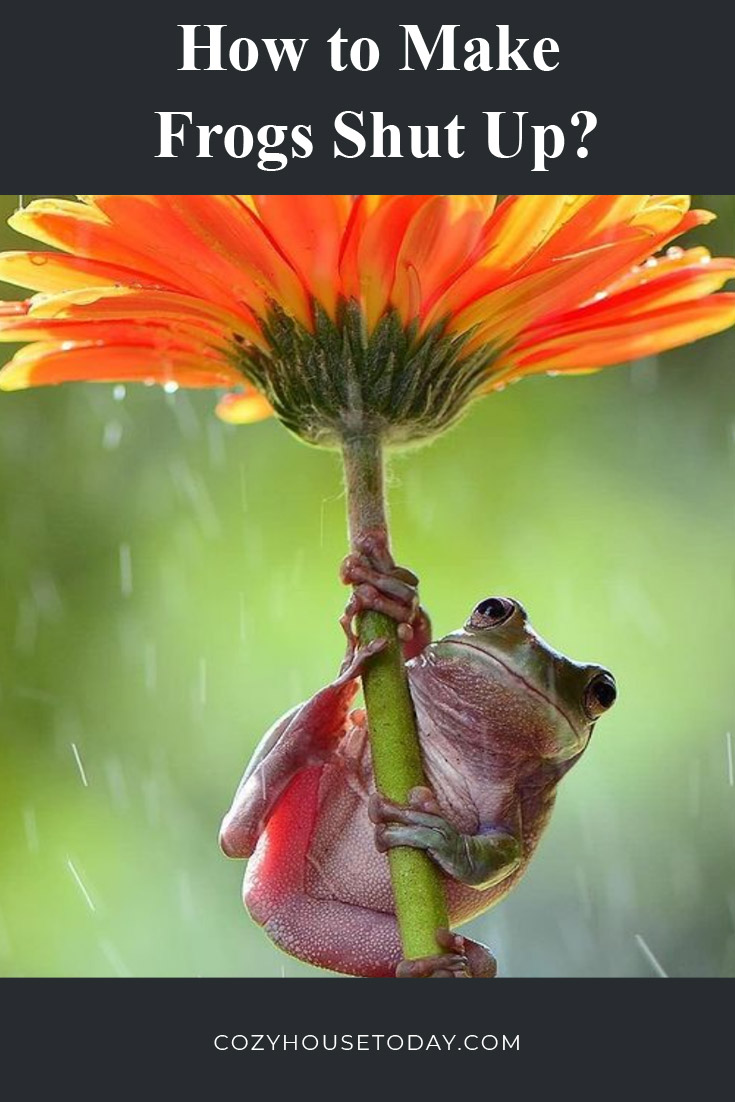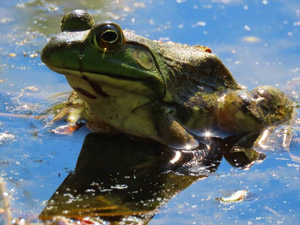
Frogs are one of the most annoying animals to live near. They constantly hop around and make loud noises, so it is no wonder why people would want them to shut up! There are many ways that people try to get frogs out of their yard or home, but these methods only work temporarily.
But what do you do when the problem is not just one frog, but a whole bunch of them? If you’re looking for a way to keep those pesky critters from making so much noise and disturbing your peace and quiet, then read on to find out how to get rid of frogs for good.
What month do frogs come out?
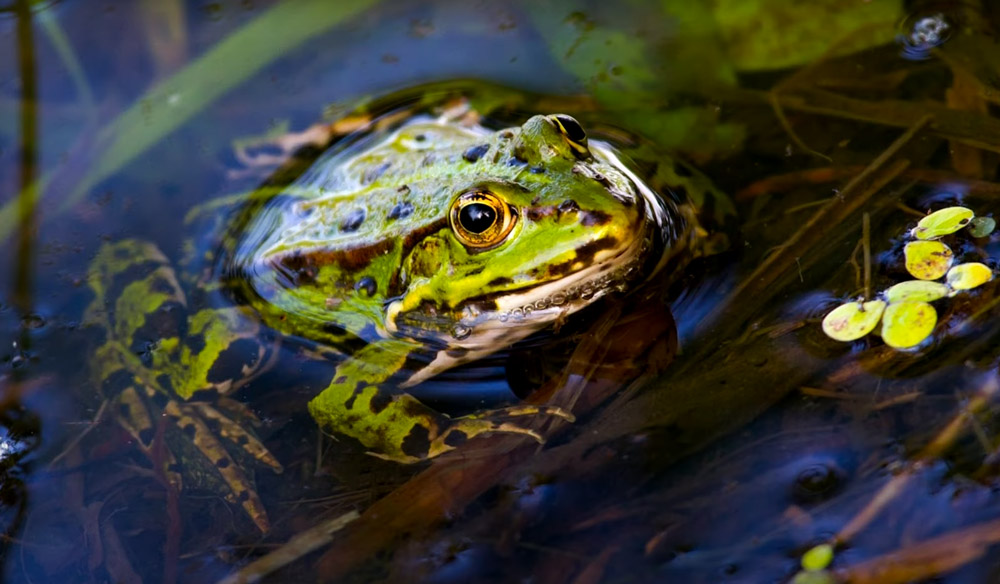
Frogs start coming out in the spring, which makes sense because they need warmth and moisture (nighttime temperatures over 5’C). Frogs love rain pools! They can also make their own ponds by digging with their back feet. A good way of keeping them away is making sure there isn’t standing water around your yard or home.
What causes frogs to croak?
Frogs croak because that is how they communicate. They make different sounds to tell other frogs about their location, whether there are predators around, and even the size of a nearby frog! Frogs also use sound as part of their mating ritual to communicate with other frogs nearby as well as male and female frogs who might be looking for mates.
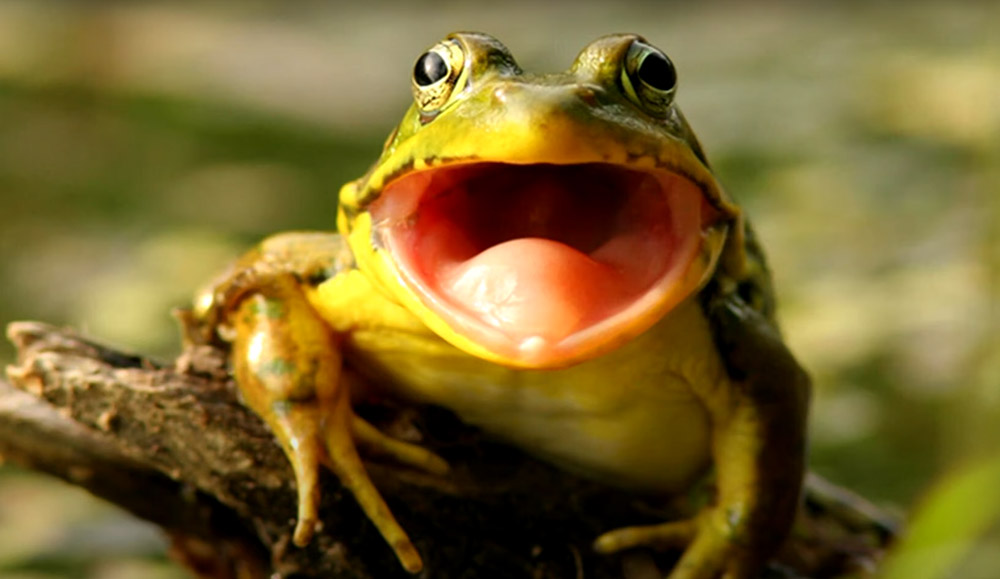
By croaking, the frog is amplifying its call so that others can hear it across water or land. The louder their croaks, the more they attract potential mates which means breeding is possible.
Why are frogs so loud after rain?
You see all frog species use vocalizations (known as “croaks” or “ribbits”) for communication. Males croak more than females, but they both use these sounds for locating other frogs in their environment – including potential mates! The frequency by which frogs croak depends on the size of the frog – larger males will often produce higher-frequency froggy songs. One study found that some species will often emit these tap-taps at a rate of 20 croaks per second.
Frogs make these sounds by forcing air through their larynx (voice box). But, the vocalizations aren’t made until they get wet! You see frogs absorb moisture from droplets on vegetation or directly from water and then use it to lubricate their calls.
When it’s raining outside, there is plenty of extra humidity in the atmosphere which makes for perfect frog-calls conditions – so after rain, you might be treated with an impromptu frog concert!

Why does a frog croak at night?
It is no secret that frogs are more active after the sun goes down. Frogs will stay in an area during the day and leave at nightfall to hunt for food, find a mate, or just explore their surroundings.
During this time of increased activity though they make themselves very noticeable! The males especially try to attract females by creating mating calls which can be heard from far away when it’s quieter outside – including inside your home if you have open windows!
Knowing how loud frogs can get also helps us understand why some species might start calling before sunset. By starting earlier in the evening, male frogs give females plenty of time to come out and join them instead of waiting around all night long.
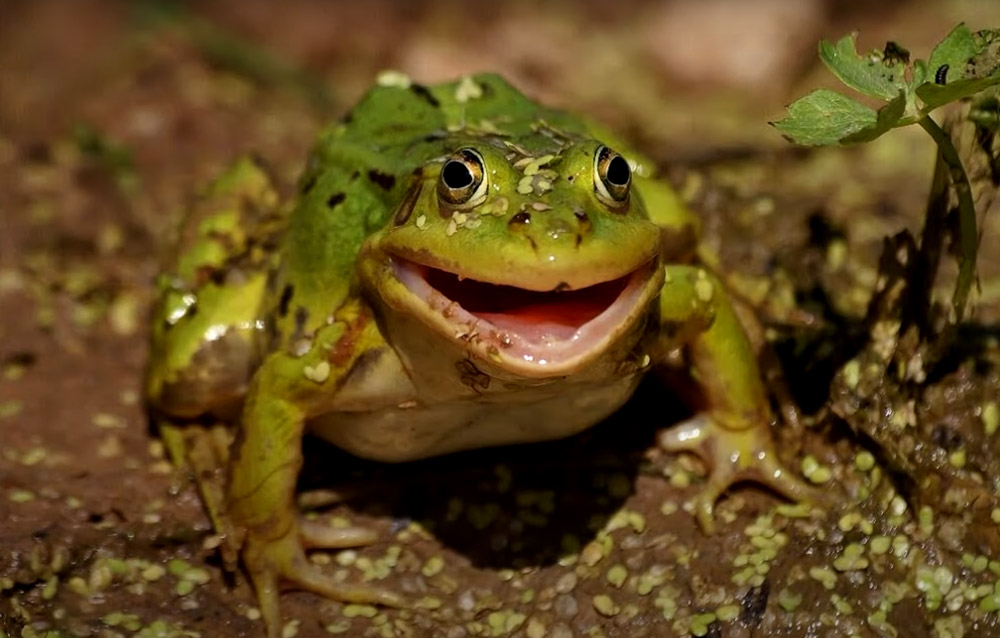
The Secret to Making Frogs Shut Up
If you want to get rid of the frogs without harming them in the process there is one option for doing so: screw traps! Screw traps work similarly to how mouse and rat traps do. The difference between these two types of devices lies within their ability to distinguish between different sizes of prey.
It’s important to keep in mind that while screw traps are one of the best ways for catching frogs and keeping them gone from your property once and for all, they will only work if you place them away from areas where people may come into contact with it or disturb it either intentionally or unintentionally (such as children).
How do you get rid of noisy frogs at night?
- Cover the pond with a screen or net. This will prevent frogs from getting in and also keep them quiet.
- Install an electronic device that produces sound to scare away the frog population, such as “Frogs Scarer.” The unit works by emitting ultrasonic waves which annoy frogs without harming pets or humans. You can place it underwater near your garden pond. It is best for outdoor use only because its large size and loud noise level when operating indoors may disturb you! However, do not leave it on all night long since animals tend to habituate after some time if kept at one constant frequency/amplitude combination (which means they get used to it!).
- Install a device that is powered by solar energy in order to avoid having an electric cord or moving parts near the pond, which may be hazardous for frogs. This unit produces sound waves similar to the electronic noise devices mentioned above but it does not require any wiring and can be placed anywhere around your garden pond. It works best when submerged underneath water because it emits ultrasonic sound waves at high levels (not suitable if you have fish) towards the surface of the water where air bubbles act like speakers amplifying sounds! The more bubbles there are, the louder will get this “amplified” sound thus scaring away all other animals including amphibians within hearing range! No batteries required; plug play with no maintenance except periodic cleaning.
What is a natural way to repel frogs?
Of course, you can use most repellents such as chemicals and sprays to repel frogs naturally. Such products are either organic or chemical-based, but it is best not to leave these around the pond because they may be hazardous for other animals that come into contact with them including your pets!
Salt or coffee grounds
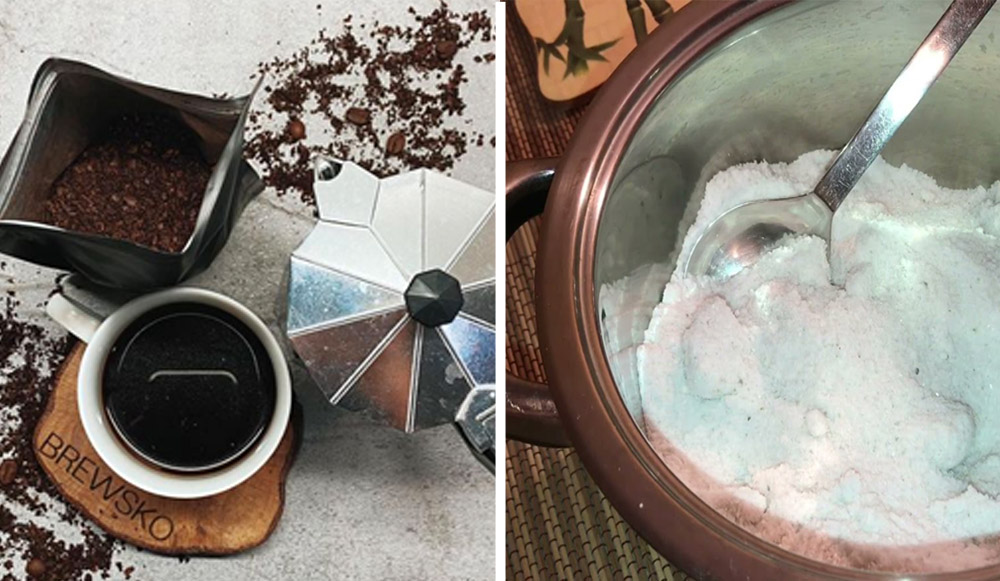
Salt is very corrosive to the skin and eyes of amphibians so they will avoid it. It has also been used as a pesticide for insects, snails, slugs, and other pests which may be harmful to your garden pond!
Coffee grounds have similar effects on frogs due to their strong smell that makes them feel uncomfortable around them. However, do not leave coffee grounds exposed in the open air because this can attract many insects even more than any frog’s presence near your house thus causing you double problems! You could spread coffee or salt under rocks or inside boxes but make sure that these are securely covered with lids if placed directly into water bodies since salts can leech out easily at high temperatures (in summer) making the water too salty for frogs.
Vinegar
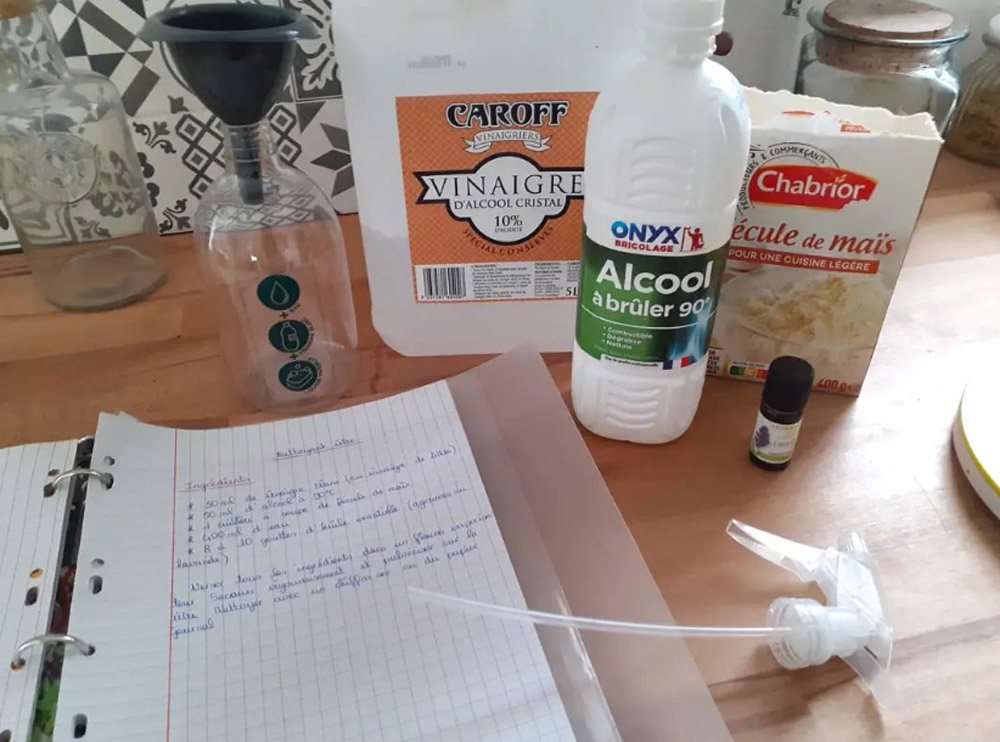
Vinegar is a natural acid that has high corrosivity towards the skin of amphibians. Therefore, you may use it to repel frogs naturally by spraying vinegar on anything around your pond or garden which these animals are using as habitats such as trees and rocks!
You can mix water with vinegar in equal parts (e.g., one cup of each) in a spray bottle then simply apply onto surfaces where frogs bask under direct sunlight near your house including plants, fence posts, walls behind/around ponds, etc.. –Spray this acidic solution into nooks and crannies often frequented by treefrogs for example underneath piles of leaves or mulch next to their breeding sites within gardens/ponds.
Citric acid
Since citric acid is a weak organic acid (based on the carboxylic functional group), it has high corrosivity towards the skin of amphibians, causes slight irritation to the eyes, and can be used as an effective repellent for frogs naturally. It also acts like vinegar by leeching out under sunlight at ponds/gardens where treefrogs bask!
However, do not spray this solution onto plants since its acidic properties may cause them harm. You need to wear gloves when handling or mixing dry citric acid with water because even though it is less corrosive than salt or vinegar, it still irritates your skin upon contact so make sure you take necessary precautions if deciding to use it!
Sprinkle cayenne pepper

Sprinkle cayenne pepper powder directly on the area where you want to keep frogs away from since this irritates their eyes/skin causing them discomfort which makes them move further away until they find another spot. However, do not spread this too close to any water sources (such as ponds) else animals will avoid coming near it altogether!
Dry ice
Another option is to scatter small chunks of dry ice (carbon dioxide) which produce gas for about 24 hours after application in your garden pond because frogs cannot stand carbon dioxide thus avoiding these areas altogether! However, do not try throwing large pieces into the water because they may explode when coming into contact with warmer waters near the surface.
Use of natural predators
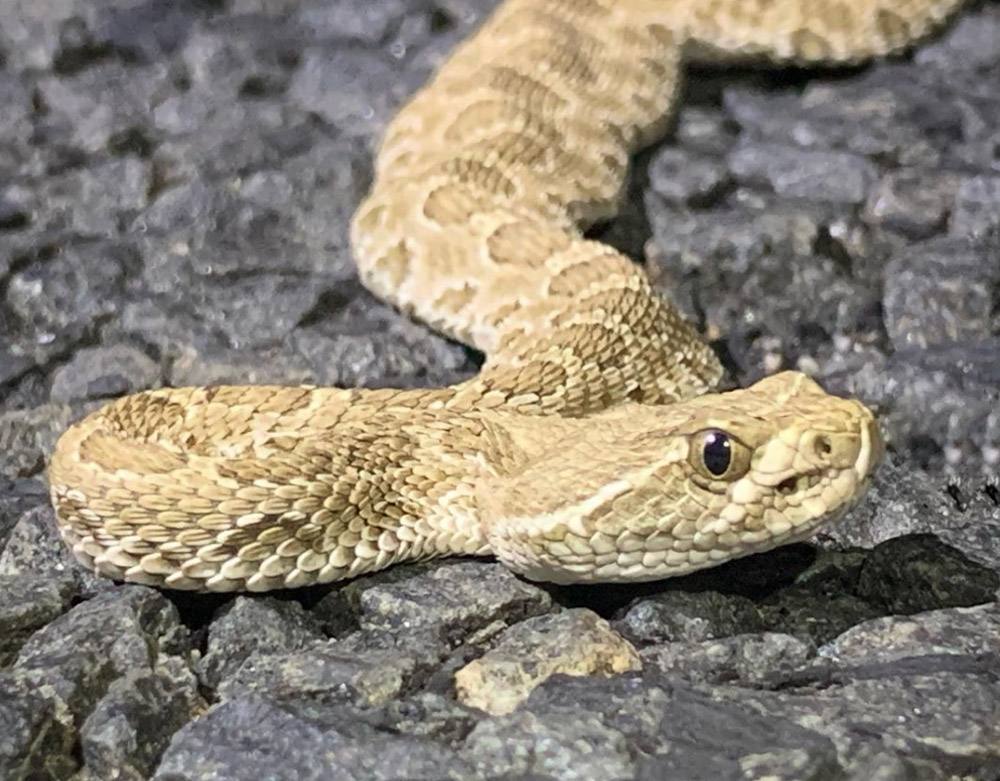
Of course, you may try using some natural enemies such as geckos or snakes in order to repel frogs naturally but we cannot recommend doing so unless these animals are present already in the area where you want to dispose of frog problems. This way would take a lot of time and patience before seeing results if any at all which makes this method less effective than getting rid of amphibians through other means instead.
Moreover, do not forget that releasing non-native/invasive species into the wild without knowing their effects on native populations could be dangerous and/or illegal!
What to do if there is a frog in your house?
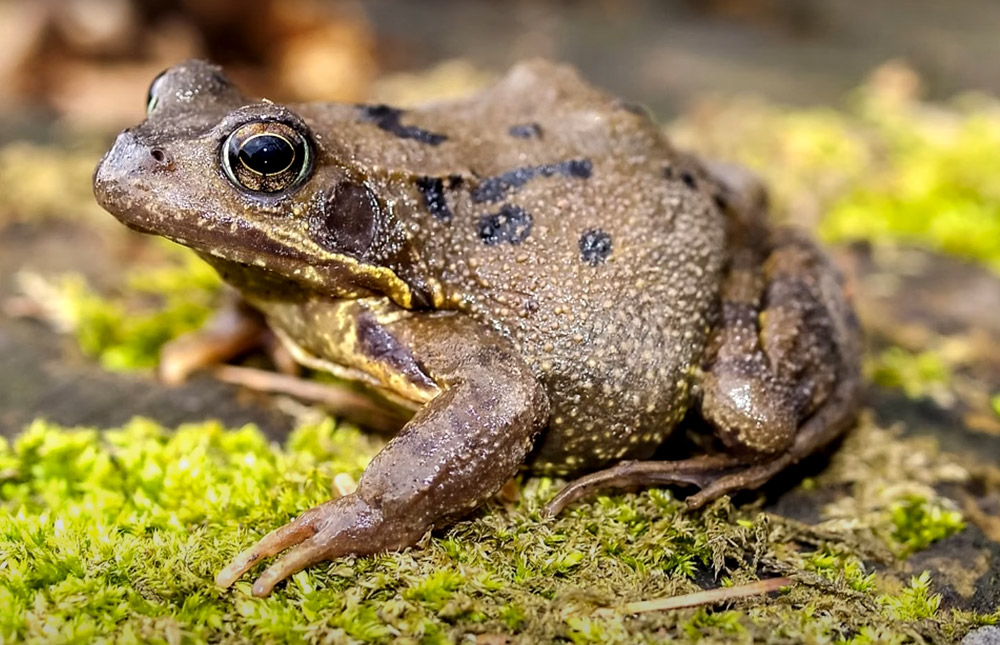
If you need to remove a frog from your house, you should wear thick gloves and use tongs or grab the animal with your bare hands then place it into a container such as a bucket!
Alternatively, if there is no water nearby in which these animals could escape into (ponds/pools etc.), throw them outside carefully without injuring yourself. If they cannot find any way out of this confined space, they will eventually suffocate but make sure not to drop or hit them against hard surfaces because doing so can cause harm even though death would be inevitable in most cases. Furthermore, always wash your hands well after handling frogs since their skin may carry harmful bacteria that could potentially infect humans too!
Finally, do not forget about other steps such as installing tight-fitting screens over vents/openings in order to prevent amphibians from entering into buildings or spaces without proper barriers.
Conclusion
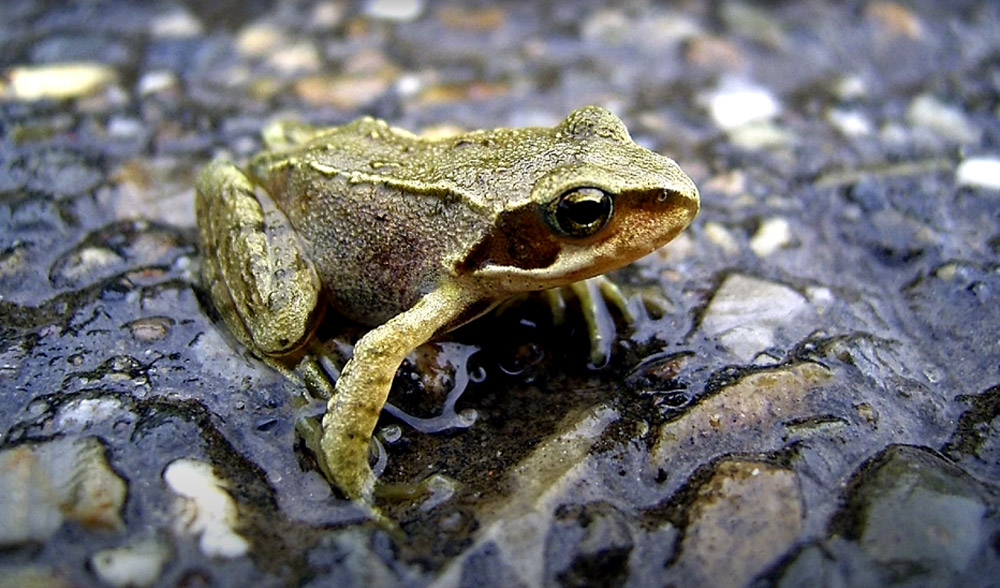
Frogs are common animals that we see around our houses and gardens. They can pose problems for humans if there is an infestation nearby, but what should you do in these situations?
Should you just try to get rid of them or live with them? It depends on the situation. If they’re outside your house, then sprinkle cayenne pepper powder near their hiding spots so they stay away from your property. This will only work if the frogs have not invaded yet! If this does happen, use dry ice instead which may be more effective because it has gas for about 24 hours after application in your garden pond without disturbing fish living in the water.
All areas where there is standing water are potential breeding grounds for amphibians like frogs which is why it’s important that you clean up any debris/leaves after storms or heavy rainfall since they can conceal eggs until hatching occurs. Lastly, make sure to call professionals when you need more help than just guidance.
There are also many repellents available online or at pet stores that will do the trick when sprayed around areas where there may be undesirable frog visitors such as ponds or gardens. These products smell bad and taste even worse – literally putting off an aroma that no frog wants near their home either!
And while these products are often effective, they can also be very dangerous – many frog repellents contain harsh chemicals that not only smell bad but could end up hurting any frogs or other animals who come by.
